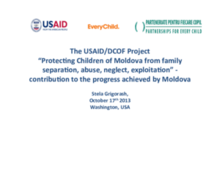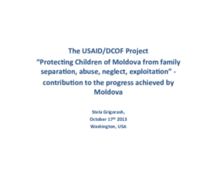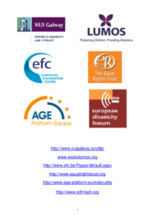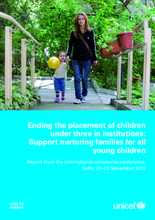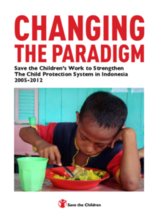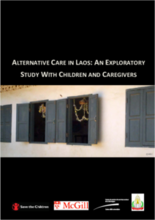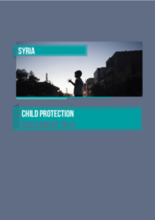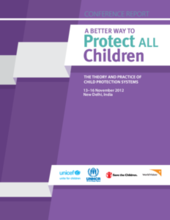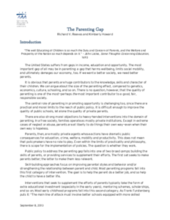Displaying 1211 - 1220 of 1798
The first of two important presentations by Dr. Stela Grigorash, the Director of Partnerships for EveryChild Moldova, on the important work and lessons learnt in reforming the care system in that country.
The second of two important presentations by Dr. Stela Grigorash, the Director of Partnerships for EveryChild Moldova, on the important work and lessons learnt in reforming the care system in that country.
This joint memo was issued by a group of European organizations to clearly state their belief that the draft language on community living in the proposed EU Structural Funds Regulations should be amended to enhance the effect and to better advance the rights of children, persons with disabilities, and older people.
This study compares the data on young people transitioning from out of home care from 9 non-communist European countries examined in the INTRAC document with 14 post-communist countries reviewed in the SOS and INTRAC publications.
This Report from the international ministerial conference, held in Sofia, 21–22 November 2012, entitled 'Ending the placement of children under three in institutions: support nurturing families for all young children', brings together the presentations, political commitments and priority actions identified by the participants, including 20 governments from Eastern Europe and Central Asia.
This report documents the work conducted by Save the Children in collaboration with the Indonesian Ministry of Social Affairs over a period of 7 years to strengthen the national child protection system and change the underlying paradigm for that system away from over-reliance on residential care and towards child and family centered responses.
This report summarizes the findings of a study on parental and alternative childcare in Luang Prabang and Xayabury provinces in Northern Lao People’s Democratic Republic.
This report just issued by the Child Protection Working Group presents the main findings of an interagency child protection assessment for Syria, covering the period February- May 2013. The report provides findings on key thematic areas: psychosocial wellbeing, physical violence, children associated with armed forces and armed groups, child marriage, sexual violence, child labour, separation from caregivers and access to basic services and information.
This report of a major conference held in New Delhi in November 2012 entitled “A Better Way to Protect ALL Children: The Theory and Practice of Child Protection Systems”, encapsulates the substantive content of the presentations and related discussion; provides an analysis and documents the journey; and suggest an agenda, or at least direction, for future work on Child Protection systems.
This paper by the Brookings Center on Children and Families examines the scope of parenting interventions in the US that directly address poor parenting, as research has found how much parenting matters.

